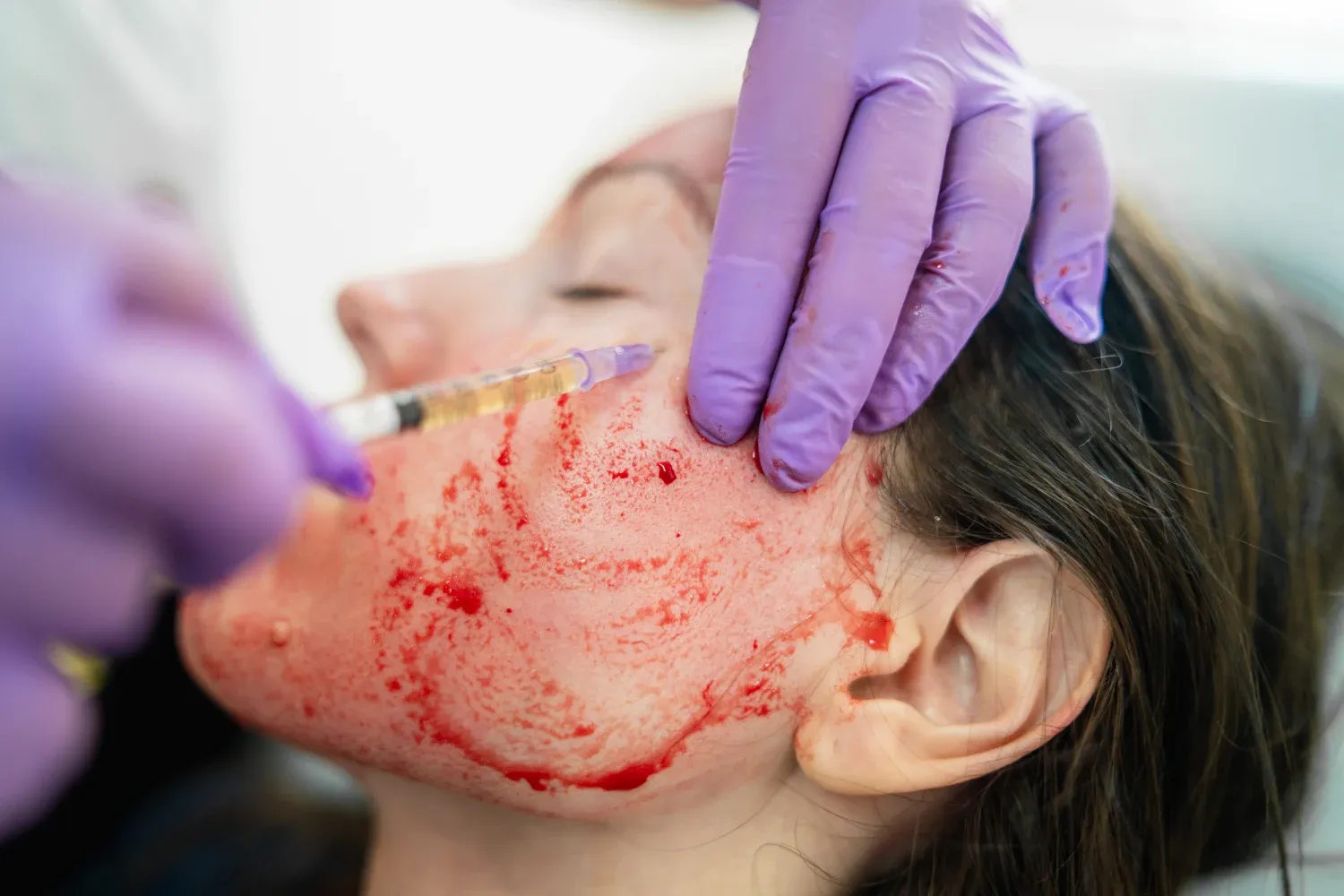HIV
At Least Three Women Were Infected With H.I.V. After ‘Vampire Facials’
The Centers for Disease Control and Prevention (CDC) has reported that at least three women contracted HIV after undergoing 'vampire facials' at an unlicensed spa in Albuquerque, New Mexico. This alarming incident marks the first known instance of HIV transmission through cosmetic injection services in the United States.
The 'vampire facial,' a term popularized by celebrities, is a cosmetic procedure officially known as platelet-rich plasma microneedling. It involves drawing a person's blood, processing it to increase the concentration of platelets, and then re-injecting it into the facial skin using fine needles. The procedure is touted for its supposed benefits, which include rejuvenating the skin and improving the appearance of wrinkles and scars.
The first case of HIV linked to the VIP Spa in Albuquerque was identified in 2018, prompting the New Mexico Department of Health to offer free testing to anyone who had received injection-related services at the facility. The spa was subsequently shut down after an inspection revealed numerous health and safety violations.
The most recent case was a former client who tested positive for HIV in 2022, which led to the reopening of the investigation and the discovery of additional details about the affected clients and the spa's practices. The initial patient, diagnosed in 2018, had no history of injectable drug use, recent blood transfusions, or recent sexual contact with an HIV-positive person. However, she reported receiving a vampire facial at the spa.
Two other middle-aged women, who also received vampire facials at the spa in 2018, were later diagnosed with HIV. One was diagnosed with the earliest stage of HIV in 2019, while the other was hospitalized with severe symptoms in 2023. The CDC report highlighted that the spa did not possess the necessary licenses to operate and did not adhere to proper safety measures.
During the joint investigation with the New Mexico Department of Health, inspectors found unlabeled tubes of blood on the kitchen counter and in the refrigerator, alongside food and injectables like lidocaine. Unwrapped syringes were discovered in drawers, on counters, and discarded in trash cans. The spa's owner pleaded guilty to five felony counts of practicing medicine without a license in 2022 and was sentenced to 3 ½ years in prison.
A total of 59 spa clients may have been exposed to HIV, with 20 of these individuals having received vampire facials. The remaining clients had undergone other injection services, such as botox. The CDC report explains that while vampire facials are considered safe as long as blood is handled properly, there is little evidence to support the claims of their benefits.
The investigation identified one client with a previous HIV diagnosis in 2012, and among five suspected cases of HIV identified among four former spa clients and one sexual partner of a spa client, all were diagnosed between 2018 and 2023 and none had known HIV risk factors. Testing showed that the virus in each case was similar, indicating that vampire facials were the likely route of transmission for three cases in the cluster.
The on-site inspection revealed a wide range of contamination and infection control violations, including the storage of unlabeled tubes of blood on the kitchen counter, indicating the potential of transmission of multiple bloodborne pathogens through multiple sources. The overarching theme, as stated by experts, is that adherence to infection control practices is crucial to prevent such incidents.
The CDC advises that spa facilities offering cosmetic injections should implement proper infection control practices to prevent the transmission of HIV and other blood-borne pathogens. The ongoing CDC investigation into counterfeit and mishandled Botox injections has also highlighted the risks associated with cosmetic procedures.
The case serves as a stark reminder of the importance of ensuring that cosmetic procedures are performed in licensed facilities that adhere to strict infection control practices. It also underscores the need for consumers to be vigilant about the qualifications and practices of the providers they choose for such services.

